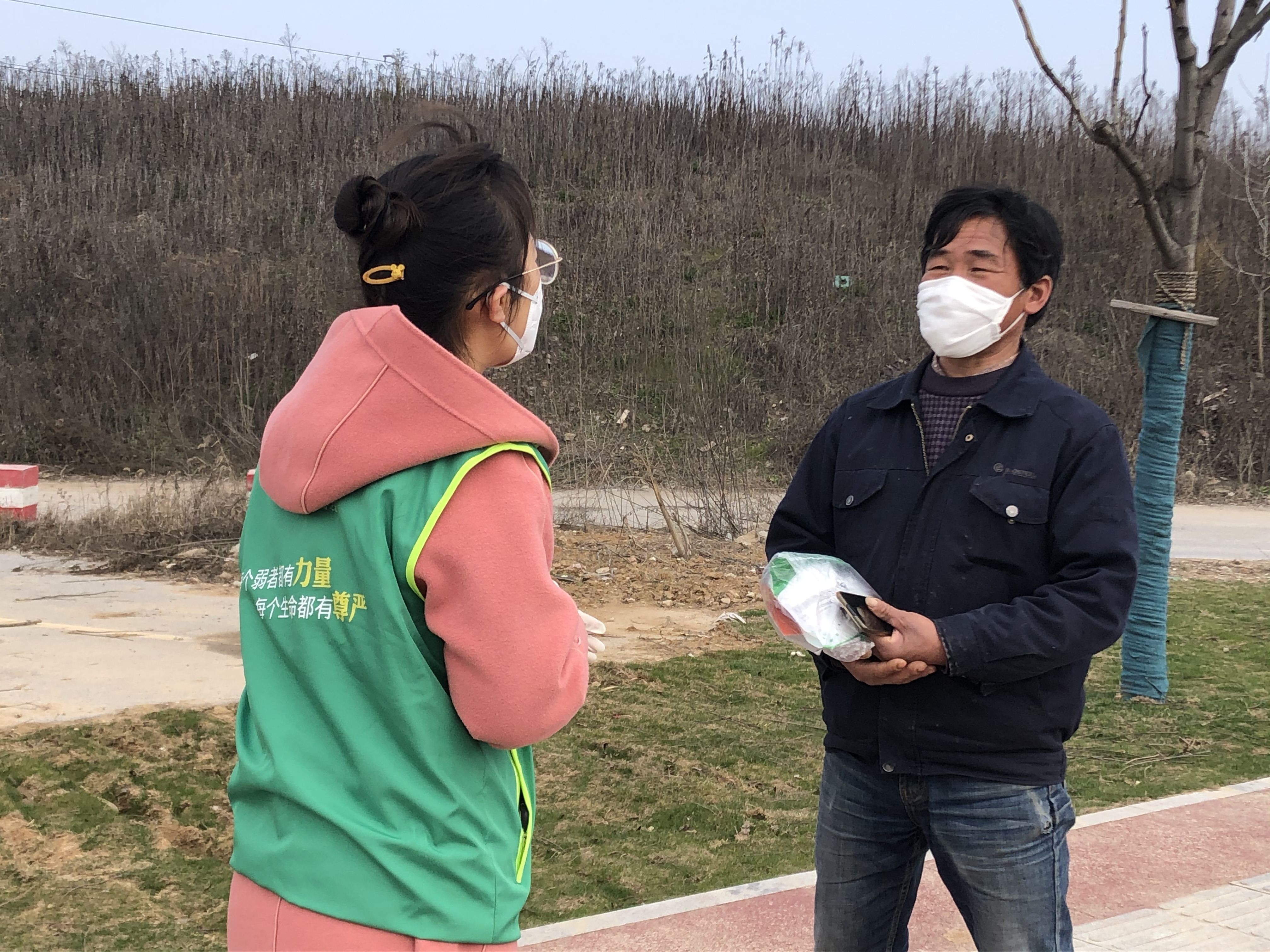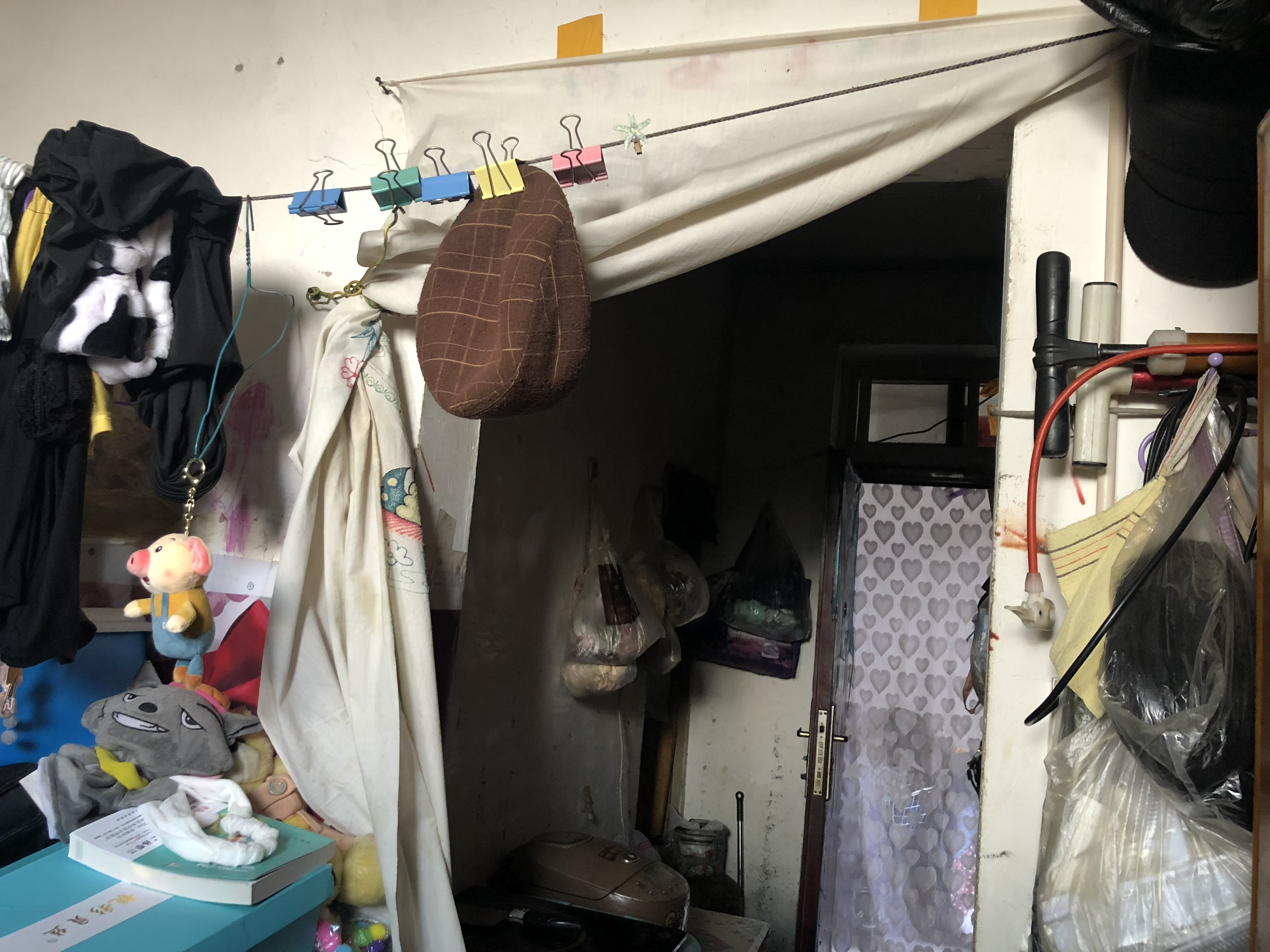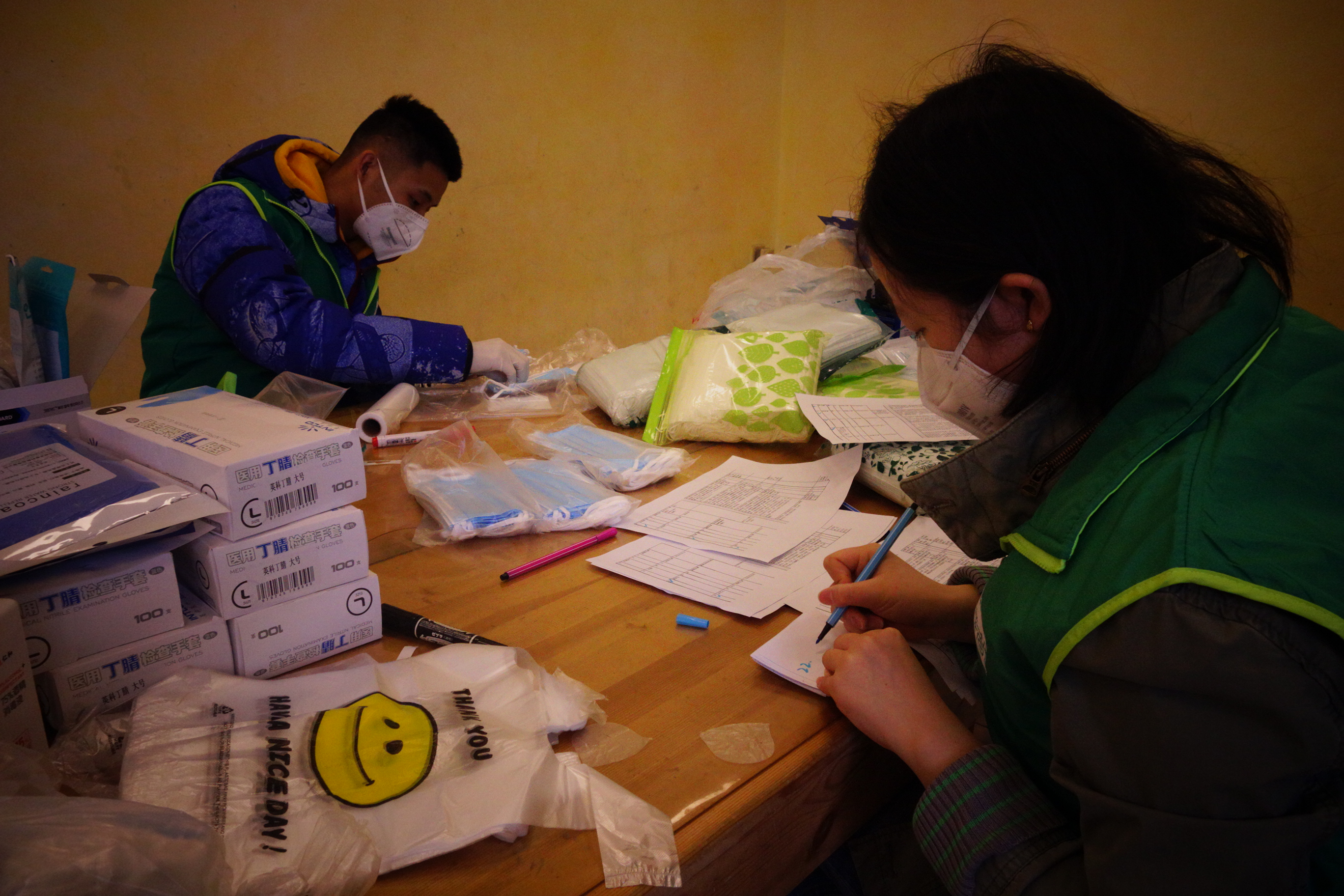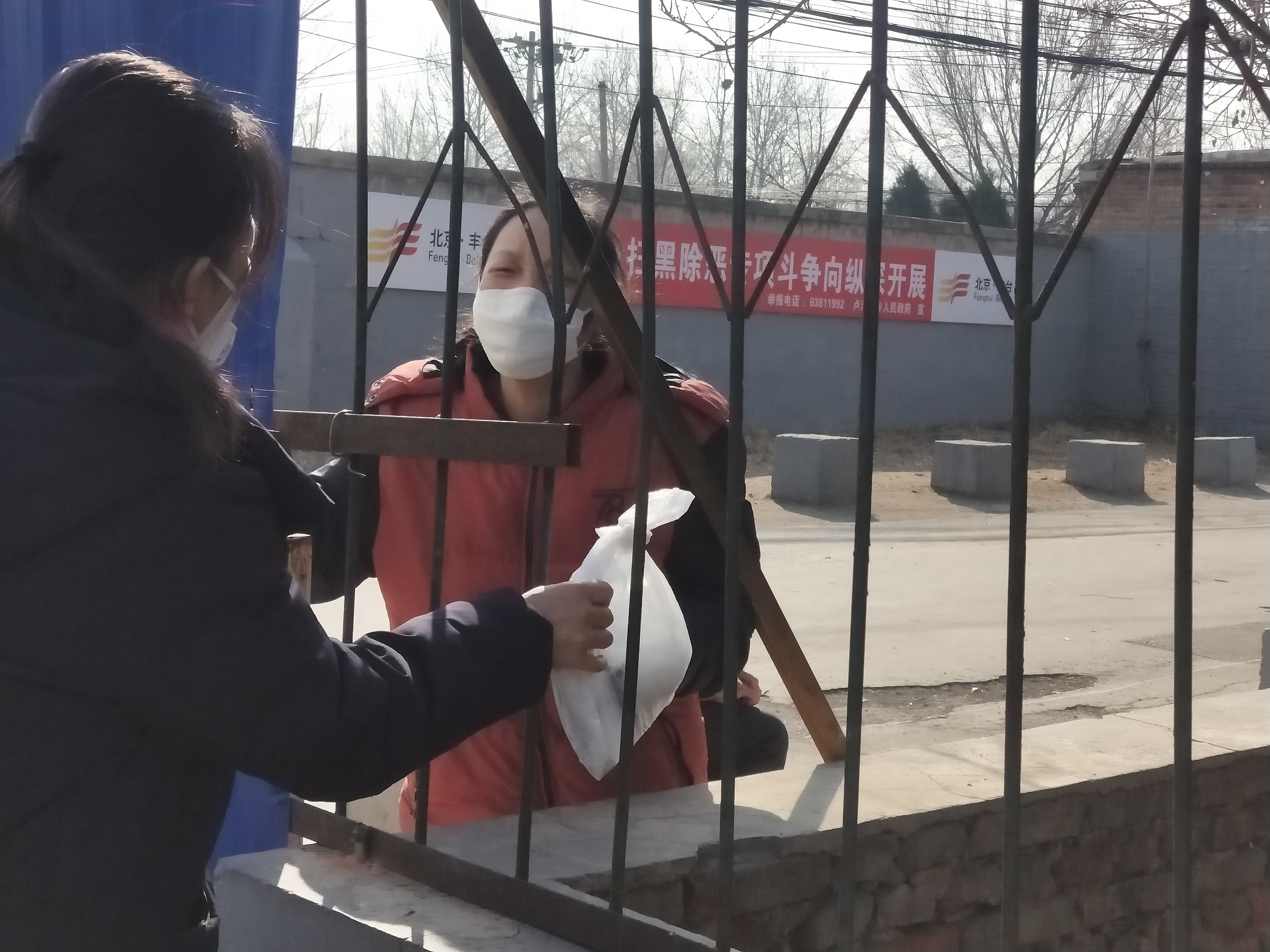His whole family depended on him, but 51-year-old Liu Xing, a migrant worker in Beijing, cannot find any work due to the coronavirus pandemic.
Four years ago, he lost vision in the right eye and for years, he has been working at a parking lot to make a living. After the coronavirus hit the country and city streets turned empty, he was told to stay at home and had his paycheck suspended. His wife has a severe disability and his 16-year-old son needs tuition for school.
The coronavirus pandemic has dealt a heavy blow to people all across society, but those who are already vulnerable, will be worst affected, said Li Tao, director of Beijing Social Work Development Center for Facilitators (Facilitators), a community organization specialized in helping migrant workers.
On January 22, the organization launched a series of campaigns to assess the special needs of migrant workers amid coronavirus and mobilized resources to help them. By the end of March, around 600 families of migrant workers have been on the receiving end of the aid, with medical masks and sanitizers donated to them from members of the society.

Volunteer talk to a migrant worker who is among the recipients of aid, Nanjing, China. /Photo courtesy of Facilitators
Volunteer talk to a migrant worker who is among the recipients of aid, Nanjing, China. /Photo courtesy of Facilitators
The coronavirus pandemic has seen a marked increase in the care people are willing to extend to their fellow man. This sense of goodwill is also visible in community organizations which are better at reaching exposed populations quickly and in ways that factor in the specific sensitivities of each community.
While the government is in charge of the epidemic control and prevention efforts, community organizations fill in the gap of the delivery of resources to the underserved.
"In times of emergency, aid is given to those with the most pressing need, not to those who are chronically poor," said a migrant worker, Mi Li, whose source of income is from picking up trash and running small businesses in Beijing, when Facilitators reached out to her to offer help.
She came to Beijing to seek medical treatment for her child who suffers from heart disease, and for her husband who was injured in a car crash. Hefty medical bills pushed her into poverty and after the coronavirus outbreak, she said she no longer dared to sift through trash cans, and thus lost her source of income.
Among the 290 million migrant workers in China, the situation of those trapped in cities with their family members, like Mi Li, is most dire, said Li Tao, director of Facilitators. They have either lost the main labor force in the family or have family members with chronic diseases. They are stuck in cities for medical treatment or for livelihood, some for their children's education, and there is no way to go back to their hometown.

Inside the home of Mi Li. /Photo courtesy of Facilitators
Inside the home of Mi Li. /Photo courtesy of Facilitators
At the initial stage of the coronavirus outbreak, many of those migrant workers had little knowledge about how to protect themselves from virus infection. Some of them used recycled face masks, thinking boiling the mask could sanitize them, or mixing garlic and sugar could help against the coronavirus, as they read information on social media.
As traffic restrictions were put in place and the manufacturing and service sectors came to a halt, many reported a sharp drop in income, as the earnings of the workers is decided by how much they produce or how many hours they work. With schools closed, who to take charge of their children's education became another problem. Online classes are not viable options in families where the internet connection is luxury or where there is no access to mobile devices.
"There are subsidiary crises that emerge out of public health crisis like coronavirus pandemic, but those subsidiary crises may oftentimes be left unnoticed," said Li, referring to the fact that some migrant workers, after losing their source of income amid the coronavirus, take up loans from loan sharks out of desperation and ended up in the cycle of poverty.
The organization that Li leads has deep roots and has built strong networks across China. It first emerged in the aftermath of the SARS outbreak in 2003, after coming to see that the needs of the migrant workers were left unmet.

Volunteers catalogue the protective equipment about to be handed out to migrant workers. /Photo courtesy of Facilitators
Volunteers catalogue the protective equipment about to be handed out to migrant workers. /Photo courtesy of Facilitators
Across China, community organizations like Facilitators are under the supervision of the Ministry of Civil Affairs. They have their specialized area of interest, and so are able to tap into expertise to provide professional service. Amid the pandemic, there are also many informal community groups that emerged of an ad hoc nature, like volunteer groups who give medical workers in Wuhan rides to and from hospitals, or overseas Chinese who run private donation drives for Wuhan.
According to reports from the China Global Philanthropy Institute, by April 7, around 177,000 volunteering campaigns were launched across the country, with more than 3.61 million registered to volunteer. Especially during the lockdown in Wuhan, on average 24,000 volunteers per day at neighborhood community keep residents' food and medicine supplied, and take elders and people with disability to hospitals when needed.
Community organizations in China, compared with government and market forces, are still at a weaker position, said Li from Facilitators. But their role is integral to identifying the special needs of small segments of the population or mobilizing resources in difficult situations, like at the initial stage of this outbreak, when surging cases strained government and medical resources.
But there are also times in which community organization may fail and thus government or market intervention is needed, he added.

Masks are handed to migrant workers at residential compound under quarantine. /Photo courtesy of Facilitators
Masks are handed to migrant workers at residential compound under quarantine. /Photo courtesy of Facilitators
"There must be collaboration between state, market and community organizations; the absence of even one actor would create problems," Li noted. At a time when the economy is being strained, to ensure that community organizations can survive amid budget cuts across corporations and foundations is crucial.
"To stimulate production is one thing; but apart from resuming production, people need to come back to life," he emphasized.
(Liu Xing and Mi Li are pseudonyms to protect the privacy of the migrant workers.)